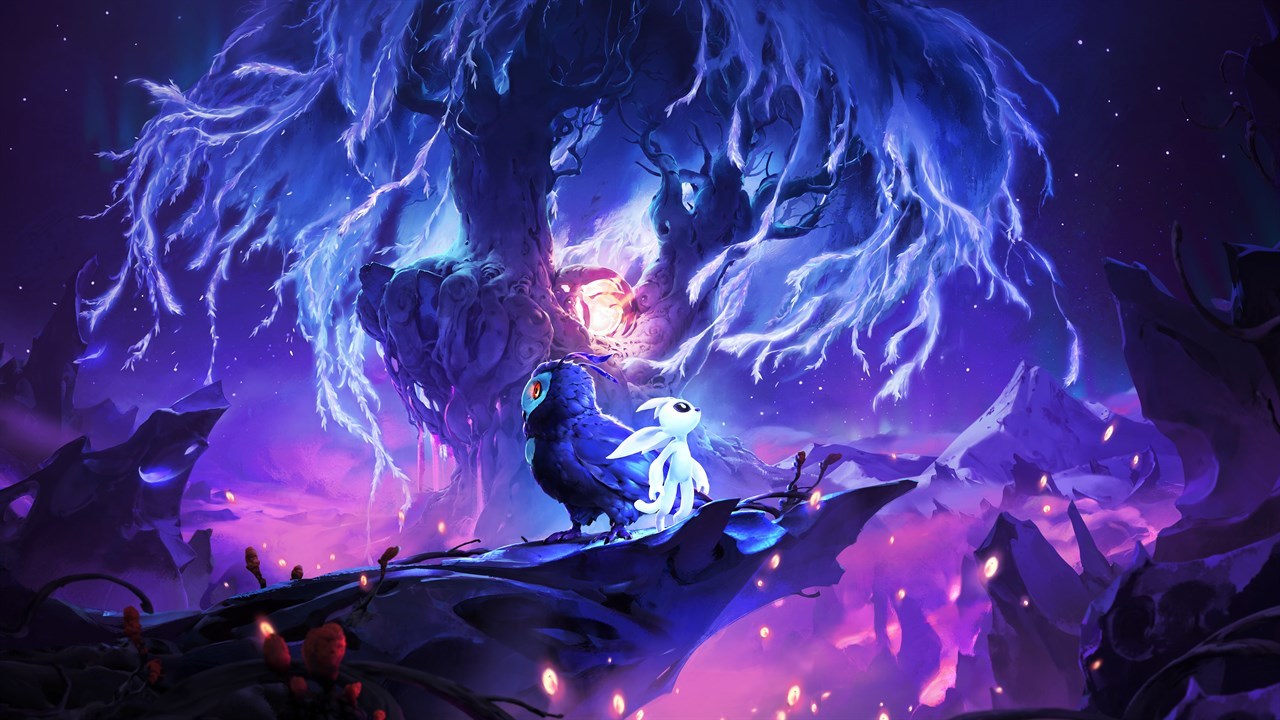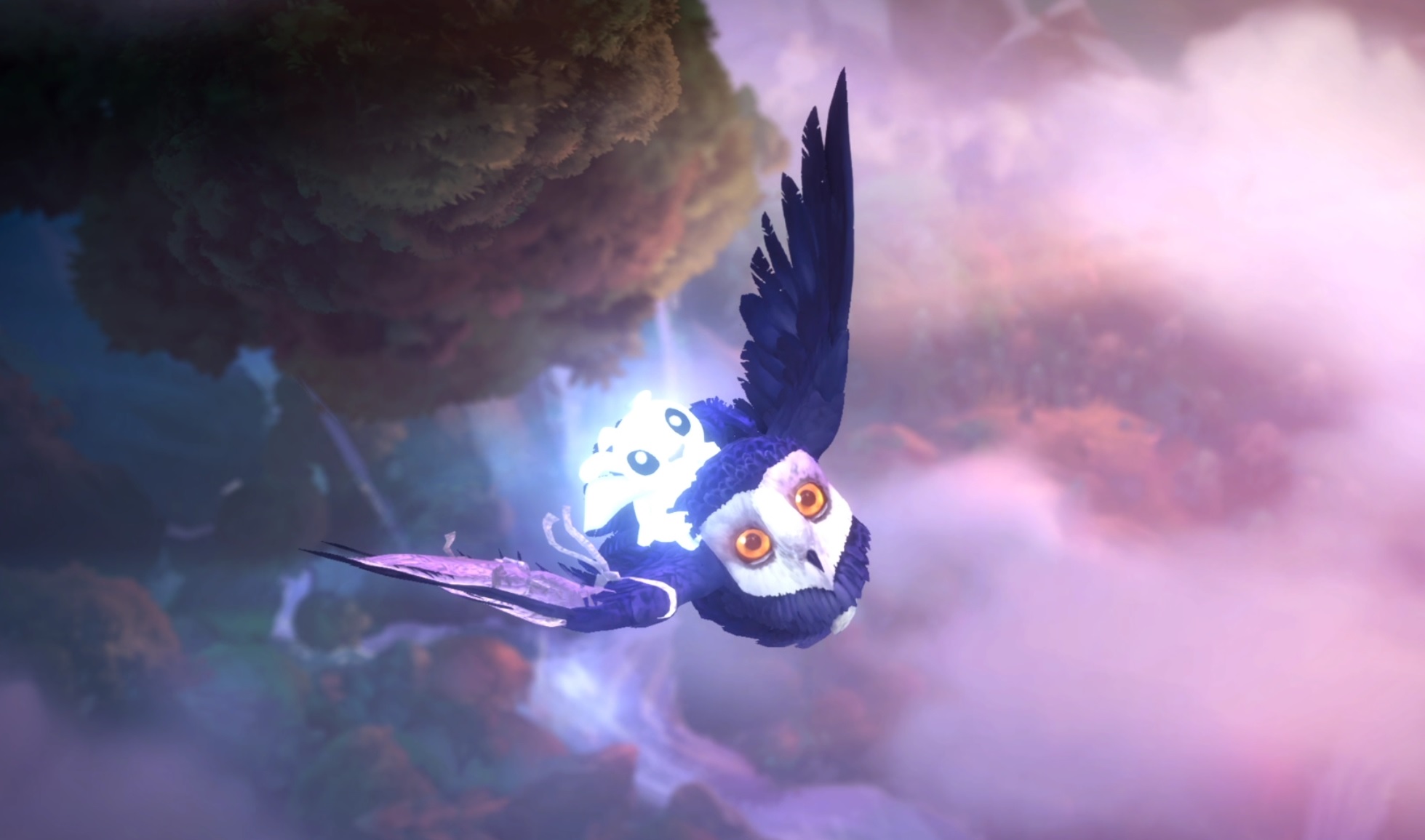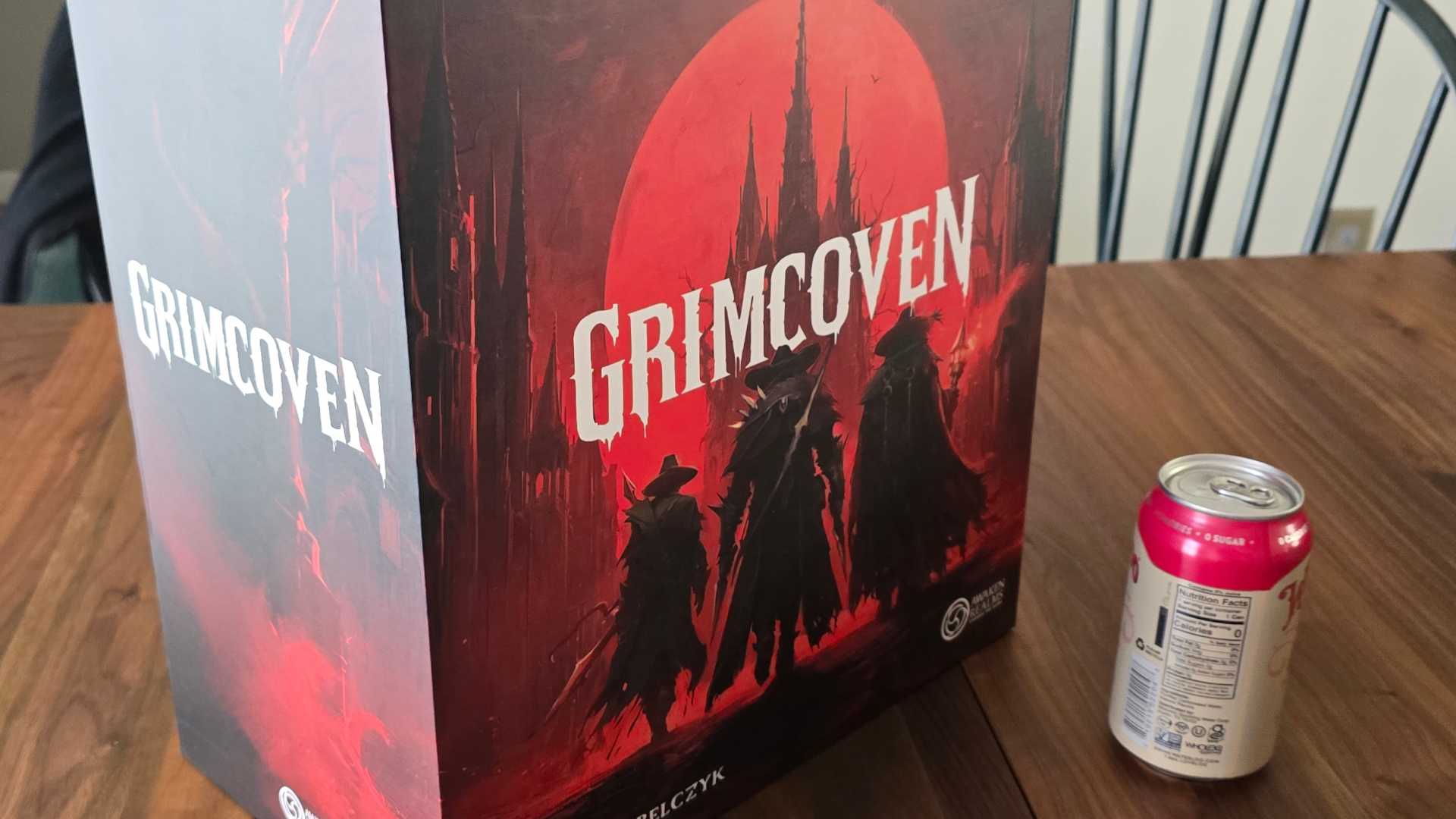GamesRadar+ Verdict
A gorgeous, tear-jerking platformer which improves on absolutely everything in the first game and ranks among the finest Metroidvanias available today.
Pros
- +
Exhilarating platforming
- +
A gorgeous world
- +
Breathtaking music
Cons
- -
Slightly underwhelming final level
- -
A few uninspired abilities
Why you can trust GamesRadar+
Something very important happened between the 2014 release of Ori and the Blind Forest and the 2020 release of Ori and the Will of the Wisps, and that thing is Hollow Knight. Clearly, when Hollow Knight schooled everyone on Metroidvanias in 2017, Ori was in the front row with a heavily weathered notebook. Ori and the Will of the Wisps grafts the best parts of modern Metroidvanias like Hollow Knight onto the compelling core established in the first game, resulting in a short but sublime action-platformer that will constantly delight your eyes, ears, and fingertips.

Release date: March 11, 2020
Platforms: Xbox One, PC
Developer: Moon Studios
Publisher: Xbox Game Studios
I say it's short, but this is one of those games that feels way longer than it is, not at all because it drags on, but because it's overflowing with ideas and constantly moving onto the next cool thing. Ori and the Will of the Wisps follows the same basic formula as its predecessor - find The Magic McGuffins and unlock new abilities along the way - but its world is livelier and denser, not to mention more dangerous. Ori is more customizable and moves better than ever, and combat is a central focus this time, with enemy and boss design to match. There are more characters to speak to (and often fawn over), there's a light quest system attached to an adorable race of lemurs, and the overarching story is an even more potent blend of Bambi and Princess Mononoke pathos.
In true Ori fashion, everything kicks off with separation: Ori and the owlet Ku are torn apart mere moments after Ku's first flight, and it's up to Ori to find her before she's caught by Shriek, the new avian antagonist. Without wishing to spoil, this eventually snowballs into another realm-endangering quest with Ori and the great willow tree, AKA the Mother of Light, at its heart. It's a familiar setup, but the juxtaposition of Ku and Shriek gives Ori and the Will of the Wisps an edge that truly shreds the heartstrings. Between Ku's crippled wing and spunky personality, Shriek's tragic origins, and Ori's ineffable lovability, I was immediately invested. It really is amazing how endearing these characters can be despite having next to no dialogue. I was teary-eyed for the first 10 minutes and the last 10 minutes, and there were plenty of gut-punches in the nine hours between.
A platforming playground
Of course, I expected Ori and the Will of the Wisps to be a bittersweet story. What I didn't expect was for it to be the best-feeling 2D game I've ever played, bar none. Ori is a true joy to control. Like the web-swinging in Marvel's Spider-Man or the axe-throwing in God of War, every one of Ori's movements is so fluidly animated and so satisfyingly weighted that the sheer kinetic thrill of it all leaves you hungry for more. I had to actively force myself to stop and appreciate the game's thickly detailed, beautifully layered environments simply because moving through them is such a treat.
Ori's arsenal of abilities has been greatly expanded in Will of the Wisps. You've got your jump, double-jump, and triple-jump. You can scale vines, cling to walls, and climb on certain surfaces (like Spider-Man, funnily enough). Ori can launch off enemies, projectiles, and hanging lanterns, and even grapple to enemies or designated anchors. You can glide through the air and ride vents upward, dash through the air and along the ground, and dive in and out of water with wonderful flourish. Ori's aerial maneuverability is extraordinary, and it only gets better with the introduction of later abilities, which I won't spoil.
Ori and the Will of the Wisps reminds me of Super Mario Odyssey in that its movement system is so flexible that it encourages you to experiment with (read: try to break) the game's rules. I was able to access several items and areas well before I was seemingly supposed to by combining abilities in unorthodox ways. And I can't stress enough that this isn't game-breaking; this is brilliant.
The moment that sticks out to me came a few hours into the game, shortly after I unlocked the ability to launch off objects. I found a cache of Light Orbs stuck to the ceiling of one area. You use Light Orbs to purchase and upgrade abilities, and I was really close to getting one I wanted. The trouble is, I couldn't reach this particular cache. No matter what I tried, it was just out of reach. I eventually gave up, assuming I was missing a crucial ability, and decided to move on.
Weekly digests, tales from the communities you love, and more
But on my way out, I air-dashed through the lantern I'd been launching off while trying to reach those Light Orbs. This caused it to sway ever so slightly, and that was my light bulb moment. What if I dashed through the lantern to swing it to the left, and then launched off it? That might give me the added height I need to reach the wall near the Light Orbs, and I can just wall jump up to them from there. Launching off lanterns resets your air-dash, so I should still be able to reach the wall if I really stretch my double-jump.
I have no idea if this is actually how you're supposed to reach those Light Orbs. I could've easily gotten them if I'd had the triple-jump already. But I do know that because I moved that lantern before launching off it, I was able to clear a tiny challenge I'd set for myself, which was hugely satisfying. And that's just one example of the countless ways you can string together abilities in order to forge your own path.
This kind of improv platforming is baked into the game through side quests and time trials. Side quests challenge you to collect certain items and bring them to various NPCs, and time trials let you race the ghosts of other players like you would in an actual racing game. The time trials, in particular, were some of my favorite segments, and I wish there were more of them. Even in a pre-release environment, climbing the time trial leaderboards through trial-and-error speedruns was exhilarating, and I was able to apply platforming techniques I picked up in these trials to levels in the main game. I can't wait to see what other players do with these things.
The time trials are so creative, in fact, that they make the final level feel a little underwhelming by comparison. The finale is a lot like the last level in the first game, for one, and it's also largely built around one ability, which limits its challenges somewhat. It feels weird for the final moments of such an inventive game to push one ability so hard that a lot of others fall by the wayside.
Get in there and fight
It's the platforming that really sells Will of the Wisps, but combat's no slouch either. Ori's packing much more than paltry projectiles this time around. You've got a sword for light attacks, a hammer for heavy attacks, and myriad ranged abilities which you can purchase from a monkey who reminds me of The Lion King's Rafiki. My favorite ranged ability was the javelin, partly because you do a cool slow-mo fade-away when you throw one, and partly because the upgraded javelin basically kills the entire screen.
All of your abilities can be accessed through a weapon wheel of sorts. At any time, you can open the wheel, select an ability, and map it to one of three face buttons. Time stops while you have the wheel open so you can change abilities at any point, which allows for fun and intuitive combos. It also gives you easy access to one of the most important (and most Hollow Knight-like) abilities: your Focus healing. You can spend one mana orb to replenish three health orbs by focusing your energy (read: standing still) for a brief moment, and this helps set the pace for many fights.
Combat is further enlivened by equippable Spirit Shards, which are scattered throughout the world and sold by another NPC. These can improve your damage output, upgrade your abilities, or make you tankier - whatever you want to spend your limited slots on. You can change your Shards whenever you want, which I appreciate. I generally used a suite of movement-based Shards with one or two damage boosters, and I'd throw on more offensive or defensive tools for boss fights or Combat Shrines. Combat Shrines are to combat what time trials are to platforming - little condensed challenges that put your skills to the test. Again, I wish there were more of these.
With a full-fledged combat system at its disposal, Ori and The Will of the Wisps is able to make more elaborate bosses. It still has the series' patented escape sequences, wherein you run through a no-checkpoint platforming gauntlet with a boss nipping at your heels, but there are also some traditional fights where you read attacks, exploit openings, and whittle away at a boss' health bar. I don't want to spoil any strategies, so I'll just say that I rather enjoyed these bosses and they were a welcome change of pace. They combine combat and platforming abilities in interesting ways, and actually fighting something gives some story beats more weight.
If there's a downside to combat, it's that a lot of Spirit Shards and abilities feel uninspired. There's a fair bit of overlap between several abilities, with many coming across as strictly better versions of others, and there were only a handful of Spirit Shards that actually interested me. Halfway through the game, I found myself overburdened with Light Orbs with nothing worthwhile to spend them on, but this is more of a missed opportunity than a problem. The lackluster abilities don't hurt the game, but they don't help it, either. Combat also becomes a bit easy after a while, at least on normal difficulty. If you stay on top of collecting health orbs (I reached 95% completion, to give you an idea), you can brute force a lot of encounters without bothering to memorize attack patterns. I'll almost definitely replay Will of the Wisps on hard mode, and I'd recommend the same to players looking for a challenge.
There are a few minor stumbles here and there, but make no mistake: I adore Ori and The Will of the Wisps. It's one of the best platformers ever made, and it's an easy front-runner for game of the year. If you liked the first game, you will love this one. And if you haven't experienced Ori's story, you owe it to yourself to dive in now, especially with both games now on Xbox Game Pass. I'll be replaying this game, listening to its soundtrack, and reminiscing over its characters for years to come.
Reviewed on PC. Review code provided by Microsoft.
More info
| Developer | Moon Studios |
| Release date | 1 January 1970 |

Austin has been a game journalist for 12 years, having freelanced for the likes of PC Gamer, Eurogamer, IGN, Sports Illustrated, and more while finishing his journalism degree. He's been with GamesRadar+ since 2019. They've yet to realize his position is a cover for his career-spanning Destiny column, and he's kept the ruse going with a lot of news and the occasional feature, all while playing as many roguelikes as possible.



